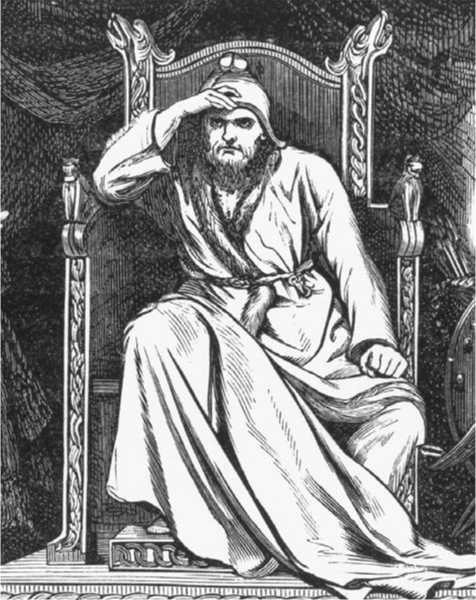One of the greatest minds of the Middle Ages, and indeed in Western history, was the theologian and church leader Augustine (aw-GUS-tin; 354-430). Raised in North Africa, he experimented with loose lifestyles and the Manichaean faith, an obscure Persian religion that viewed all existence as a battle between good and evil, before embracing Christianity in 386. Later he became bishop at the Mediterranean port city of Hippo, now part of northeastern Algeria. Augustine wrote a number of important books, including the Confessions and De civitate Dei, or the City of God. The former, the world's first autobiography, was a deeply personal work, whereas the latter discussed the whole history of the world.
Augustine wrote the City of God after the Visigoths sacked Rome in 410. This event was far more devastating than the actual end of the Western Roman Empire sixty-six years later, and wise men throughout the Roman world looked for reasons why it had happened. They did not try to provide a military or political explanation, as modern analysts would; in a fashion more typical of premodern people, they saw the event purely in religious terms. The gods of Rome, many claimed, were angry at the Romans for turning away from them in favor of Christianity.
Not so, claimed Augustine in the City of God; in fact, quite the opposite was true. The Visigoths were a punishment from the Christian God for the Romans' continued sinfulness. He then went on to outline a number of ideas that would become essential to medieval European thought. The world was divided into two groups, he wrote: the city or society of people who were loyal to God on the one hand, and those loyal to earthly exis-tence—which was the same thing as loyalty to Satan—on the other. The City of God, as he called the first group, was destined to triumph over the City of Man. This idea provided a basis for later claims by the popes that the church, as the City of God, should dominate the state, or the City of Man.

Attila, leader of the Huns, spread fear throughout Western Europe, though Pope Leo I was able to convince him not to attack Rome. Reproduced by permission of the Corbis Corporation.
Brilliant Visigoth king named Alaric (AL-uh-rik; c. 370-410). After Theodosius died, Alaric turned against Rome.
To protect themselves against invasion, the Romans had moved their capital from Rome itself to Ravenna, a city in northeastern Italy surrounded by marshes. Yet Rome still remained the center of the Western world, and one of its greatest defenders was a "barbarian" named Stilicho (STIL-i-koh; c. 365-408). Stilicho's people were the Vandals, a Germanic tribe that, following their defeat by the Visigoths in Constantine's time, had requested and received permission to settle within the empire. Stili-cho himself had proven such an able commander and administrator that he essentially ruled the Western Roman Empire, and he was able to repel an earlier attack by Alaric. However, a rival managed to convince the reigning emperor that Stilicho was a traitor, and he was executed in 408—two years before Alaric's troops returned.
The Romans tried to bribe Alar-ic, who had surrounded the city and cut off all food supplies. For a time, Alaric considered it, but in the end he invaded the city. For three days in August 410, Rome experienced a terror it had not known since the Gauls' invasion exactly eight hundred years before. The Visigoths and their army, which included Huns and runaway Roman slaves, looted, burned, and killed, virtually destroying the city.
Later a rumor would spread that the Visigoths had destroyed Rome because they were pagans and resented Rome's acceptance of Christianity. This rumor helped bring about one of the most important books of the Middle Ages (see box, "Augustine and the City of God"), but it was not true: the Visigoths were Christians, though they subscribed to the Arian heresy. They even spared the Church of St. Peter, center of the pope's authority.




 World History
World History









